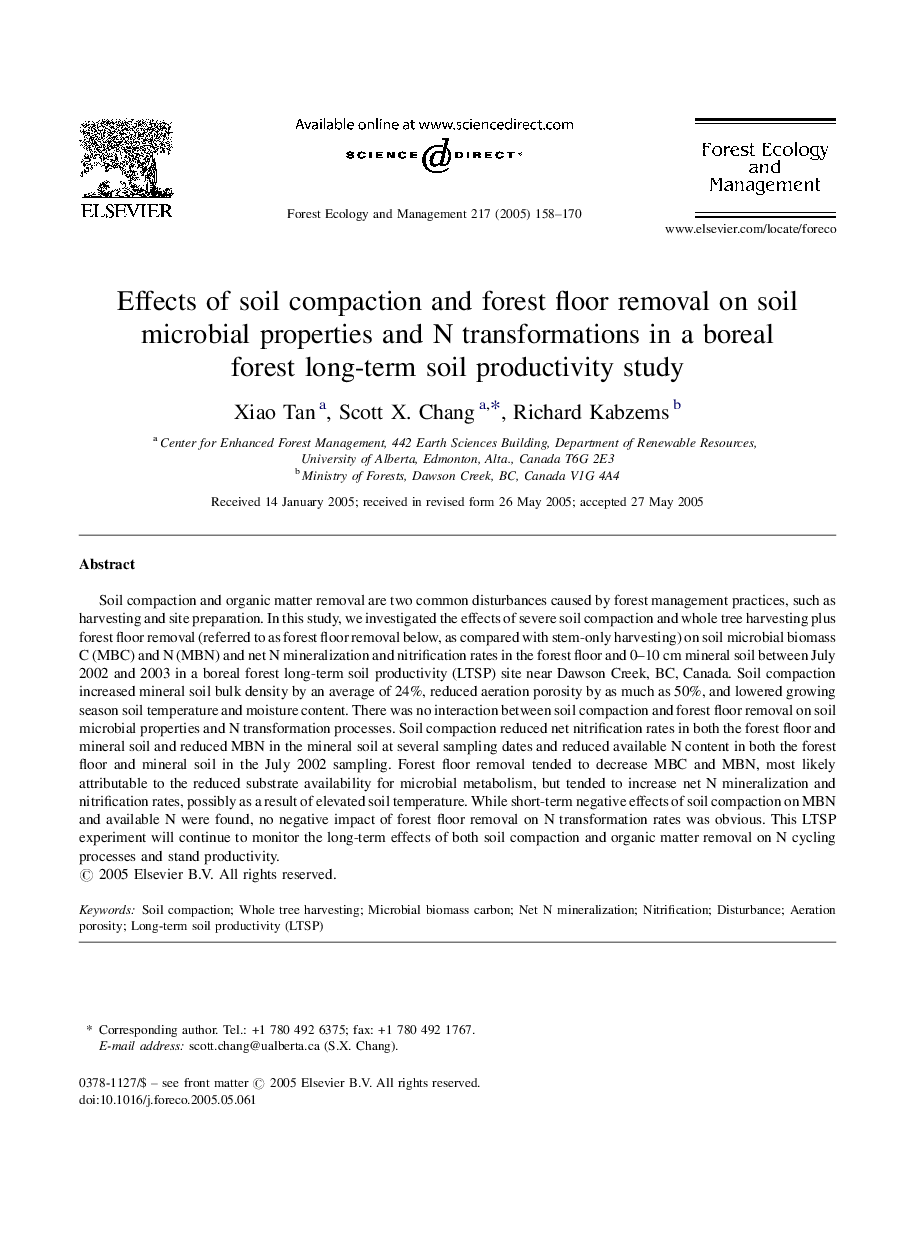| Article ID | Journal | Published Year | Pages | File Type |
|---|---|---|---|---|
| 9620146 | Forest Ecology and Management | 2005 | 13 Pages |
Abstract
Soil compaction and organic matter removal are two common disturbances caused by forest management practices, such as harvesting and site preparation. In this study, we investigated the effects of severe soil compaction and whole tree harvesting plus forest floor removal (referred to as forest floor removal below, as compared with stem-only harvesting) on soil microbial biomass C (MBC) and N (MBN) and net N mineralization and nitrification rates in the forest floor and 0-10Â cm mineral soil between July 2002 and 2003 in a boreal forest long-term soil productivity (LTSP) site near Dawson Creek, BC, Canada. Soil compaction increased mineral soil bulk density by an average of 24%, reduced aeration porosity by as much as 50%, and lowered growing season soil temperature and moisture content. There was no interaction between soil compaction and forest floor removal on soil microbial properties and N transformation processes. Soil compaction reduced net nitrification rates in both the forest floor and mineral soil and reduced MBN in the mineral soil at several sampling dates and reduced available N content in both the forest floor and mineral soil in the July 2002 sampling. Forest floor removal tended to decrease MBC and MBN, most likely attributable to the reduced substrate availability for microbial metabolism, but tended to increase net N mineralization and nitrification rates, possibly as a result of elevated soil temperature. While short-term negative effects of soil compaction on MBN and available N were found, no negative impact of forest floor removal on N transformation rates was obvious. This LTSP experiment will continue to monitor the long-term effects of both soil compaction and organic matter removal on N cycling processes and stand productivity.
Keywords
Related Topics
Life Sciences
Agricultural and Biological Sciences
Ecology, Evolution, Behavior and Systematics
Authors
Xiao Tan, Scott X. Chang, Richard Kabzems,
